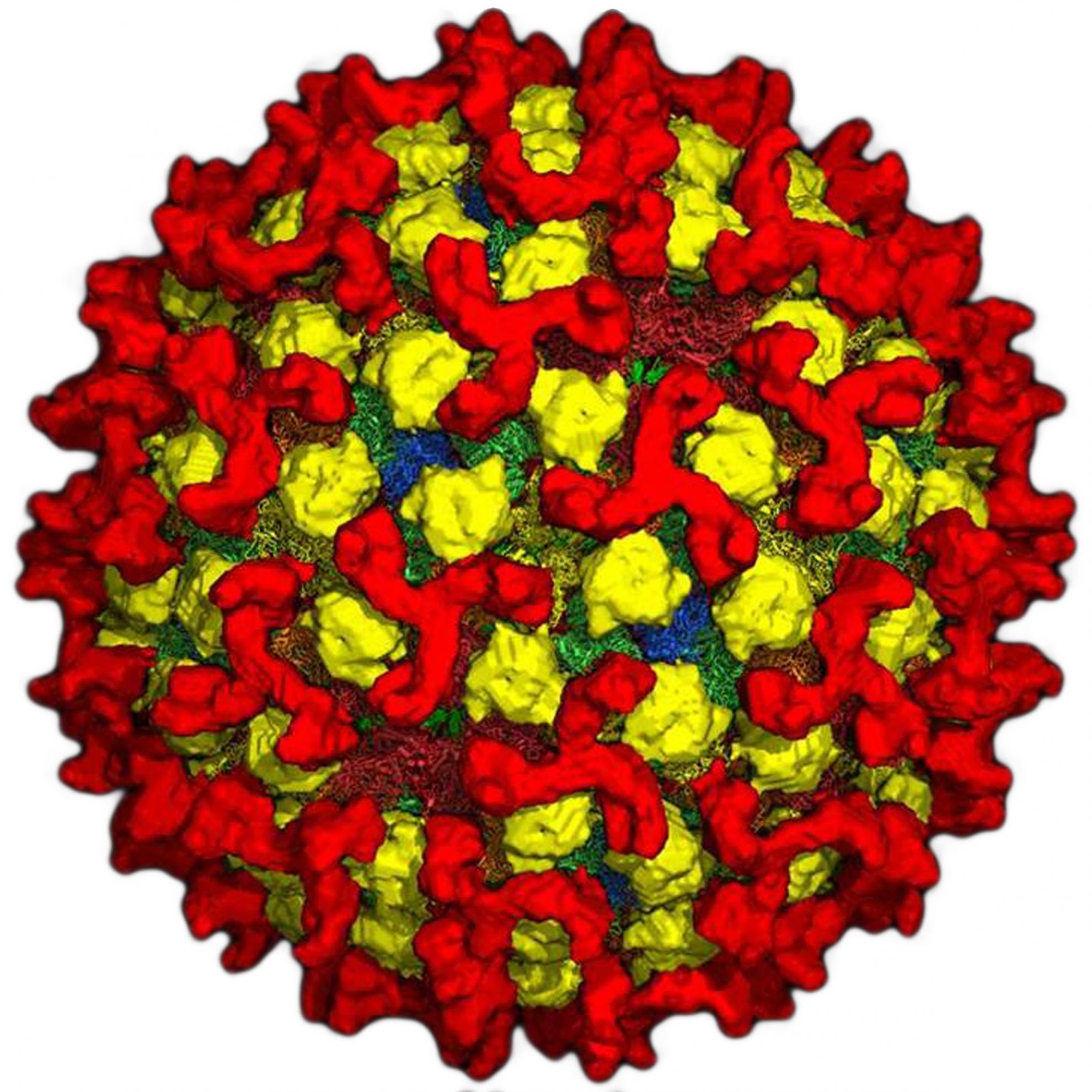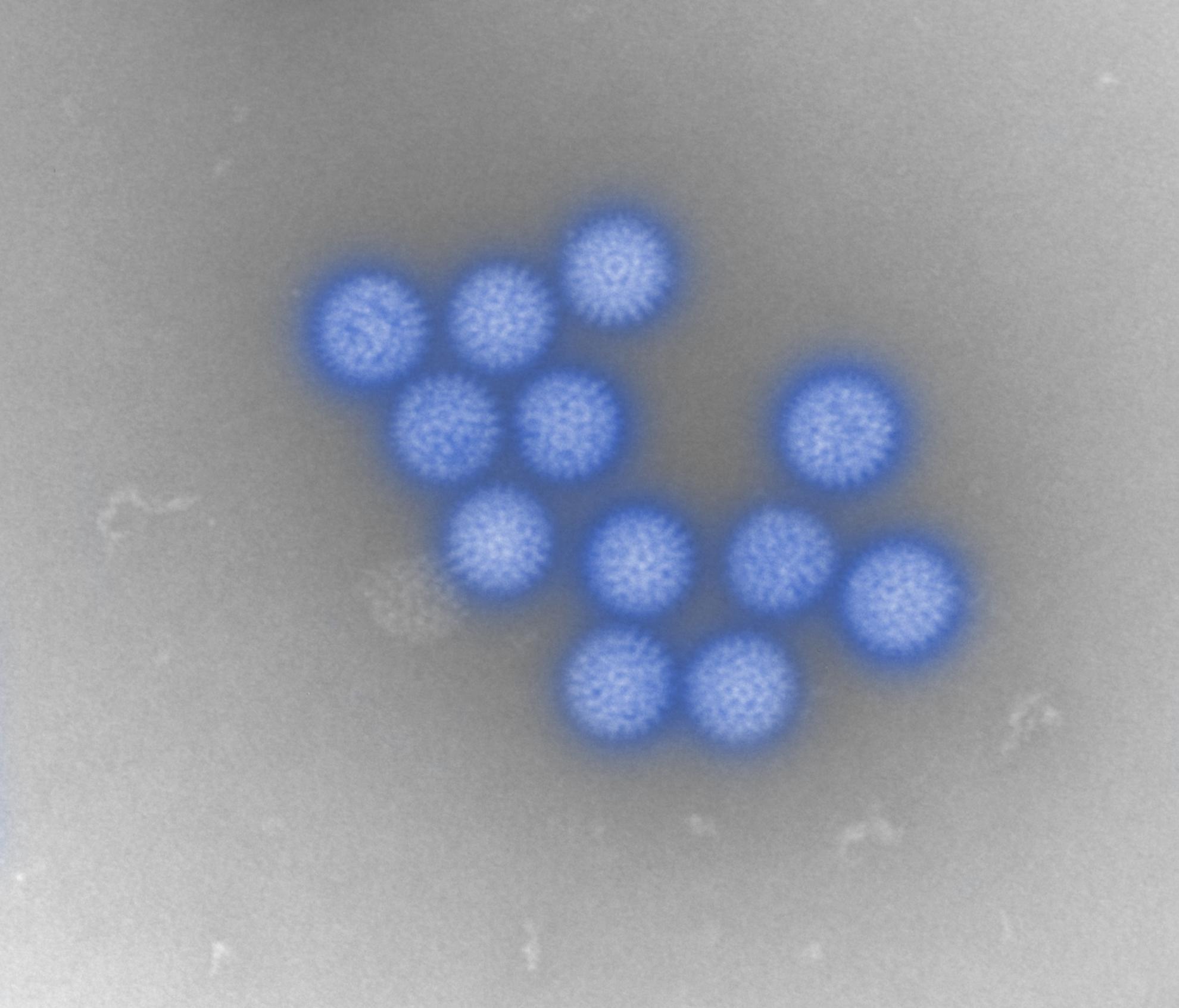Bluetongue virus serotype 26: Infection kinetics, pathogenesis and possible contact transmission in goats
The aim of this study was to assess the pathogenicity and infection kinetics of Bluetongue virus serotype 26 (BTV-26) in goats. Out of a group of six goats housed in insect free accommodation, five were experimentally infected with BTV-26 and one was kept uninfected as an in-contact control. Samples taken throughout the study were used to determine the kinetics of infection using a pan specific BTV real time RT-PCR assay and a group specific ELISA. The five infected goats did not show clinical signs of BTV, however high levels of viral RNA were detected and virus was isolated from the blood of all 5 goats. Antibodies against BTV were first detected between 7 and 11 dpi in all 5 experimentally infected goats. Interestingly at 21 dpi viral RNA was detected in, and virus was isolated from, the blood of the in-contact control goat, which also seroconverted. These results suggest that BTV-26 replicates to high levels in goats, causing no obvious clinical disease, suggesting that goats may be the natural host for this virus. Preliminary evidence also indicates that BTV-26 may be spread by contact transmission between goats, however a more detailed study is required in order to confirm this observation.
Back to publications

